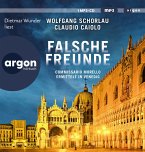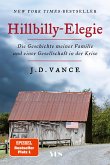Bücher kaufen: online, bequem und sicher bei bücher.de!
Sie lieben Bücher? Wir auch! Und nicht nur das: bücher.de ist ein moderner Online-Versandhändler mit einem breiten und gleichzeitig tiefen Angebot an Büchern, eBooks, Hörbüchern, Spielzeug, Fanartikeln und Unterhaltungsmedien wie Games, Musik und Filmen. Unser Ziel ist es, Ihre Leidenschaft fürs Lesen, Spielen und Leben zu teilen – und Ihnen den Onlinekauf so bequem und einfach wie möglich zu machen. Bücherfans finden innerhalb unserer übersichtlich gestalteten Kategorien Bücher, eBooks, Kinderbücher, Jugendbücher, Ratgeber, Englische Bücher und Buch-Reihen schnell das, was sie interessiert. Ihr Herz schlägt für Musik, Filme oder Games? Stöbern Sie durch unsere Spitzenauswahl an CDs, DVDs, Software, Games und Spielzeug nach Ihren Lieblingsartikeln. Mit wenigen Klicks schließen Sie den Bestellvorgang ab und schon nach ein paar Werktagen liefern unsere Versanddienstleister Ihre Bestellung an Ihre Wunschadresse.
Ihre Vorteile bei bücher.de
Profitieren Sie bei der Bestellung von den Vorteilen unseres Onlineshops:
- Kein Mindestbestellwert: Egal ob Sie Bücher kaufen oder andere Artikel: Beim Einkauf auf bücher.de gibt es keinen Mindestbestellwert.
- Schnelle Lieferung: Ihre Bestellung wird umgehend bearbeitet und direkt der Deutschen Post übergeben, damit Sie Ihre Ware so schnell wie möglich erhalten (in der Regel innerhalb von 1-4 Werktagen bei sofort lieferbaren Artikeln)
- Kauf ohne Risiko: Dank unseres 14-tägigen Widerrufsrechts können Sie Ihre Bestellung kostenfrei innerhalb von zwei Wochen zurücksenden oder umtauschen.
- Sichere Bezahlmethoden: Neben den gängigen Zahlungsmethoden (Kreditkarte, Lastschrift, PayPal) ist bei uns auch eine Zahlung per Rechnung möglich! Egal für welche Bezahlart Sie sich entscheiden – es fallen keine zusätzlichen Kosten oder Bearbeitungsgebühren an.
Bücher online bestellen: unser Service für Sie
Sie haben ein Auge auf ein Buch geworfen, möchten aber vor dem Kauf kurz reinlesen? Sie wissen noch gar nicht so genau, wonach Sie suchen? Mit umfassenden Infos und Entscheidungshilfen machen wir Ihren Bücherkauf bei bücher.de ganz leicht. Wir bieten zu vielen Büchern Online-Leseproben an. Direkt beim Artikel finden Sie auch Rezensionen der FAZ und der Süddeutschen Zeitung sowie die Bewertungen unserer Kundinnen und Kunden. So können Sie gut einschätzen, ob ein Buch Ihren Erwartungen entspricht. Nutzen Sie Ihre Vorteile in unserem Onlineshop und bestellen Sie Bücher und mehr bei bücher.de – schnell und günstig.
bücher.de ist Ihr Buchladen im Internet seit 1999
Seit mehr als 25 Jahren steht die Marke bücher.de für Lesen und Spielen, Lernen und Leben. Mit über 15 Millionen Artikeln in den Kategorien
Bücher,
eBooks,
Hörbücher,
Kinderbücher,
Schule,
Kalender,
Spielzeug,
Musik,
Filme,
Games,
Software,
Technik, Schönes und Nützliches zum
Wohnen & Leben und mehr begleiten wir unsere Kundinnen und Kunden durch alle Lebensphasen. Wir führen alle in Deutschland lieferbaren Bücher und haben unser Sortiment über die Jahre um weitere Bereiche ergänzt. Sie suchen Topseller, Empfehlungen und Geheimtipps? Unsere Redaktion stellt Ihnen Woche für Woche neue Trends und Highlights vor: auf unserer Homepage, im Newsletter und im
bücher.de Magazin. Damit bieten wir Ihnen Millionen Möglichkeiten, um Ihren Alltag und Ihre Freizeit sinnvoll und angenehm zu gestalten! Preisknaller und Schnäppchen runden unser Angebot ab: Werfen Sie einen Blick in unsere Kategorie
SALE oder stöbern Sie durch unsere
Mängelexemplare und Restauflagen.
 4,95 €
4,95 € Steffen DobbertNord Stream18,00 €
Steffen DobbertNord Stream18,00 € WISO Steuer 202529,99 €
WISO Steuer 202529,99 € Eckart von HirschhausenDer Pinguin, der fliegen lernte18,00 €
Eckart von HirschhausenDer Pinguin, der fliegen lernte18,00 € Dorfromantik Sakura33,99 €
Dorfromantik Sakura33,99 € J. D. VanceHillbilly-Elegie18,00 €
J. D. VanceHillbilly-Elegie18,00 €![Rechne dich schlank Rechne dich schlank]() Guido RohrerRechne dich schlank24,00 €
Guido RohrerRechne dich schlank24,00 €![Strickmuster. Die Sammlung. (Mängelexemplar) Strickmuster. Die Sammlung. (Mängelexemplar)]() Lydia KlösStrickmuster. Die Sammlung. (Mängelexemplar)10,99 €
Lydia KlösStrickmuster. Die Sammlung. (Mängelexemplar)10,99 €![Mein Ramadan 2025 Mein Ramadan 2025]() Jennah SchottMein Ramadan 202512,99 €
Jennah SchottMein Ramadan 202512,99 €![Paper Mario: Die Legende vom Äonentor (Nintendo Switch) Paper Mario: Die Legende vom Äonentor (Nintendo Switch)]() Paper Mario: Die Legende vom Äonentor (Nintendo Switch)49,99 €
Paper Mario: Die Legende vom Äonentor (Nintendo Switch)49,99 €![Für Polina Für Polina]() Takis WürgerFür Polina26,00 €
Takis WürgerFür Polina26,00 €![Ostfriesennebel / Ann Kathrin Klaasen ermittelt Bd.19 Ostfriesennebel / Ann Kathrin Klaasen ermittelt Bd.19]() Klaus-Peter WolfOstfriesennebel / Ann Kathrin Klaasen ermittelt Bd.1914,00 €
Klaus-Peter WolfOstfriesennebel / Ann Kathrin Klaasen ermittelt Bd.1914,00 €![Meine Vollmachten für den Notfall Meine Vollmachten für den Notfall]() Markus KönigMeine Vollmachten für den Notfall12,00 €
Markus KönigMeine Vollmachten für den Notfall12,00 €![Gebrauchsanweisung für Franken Gebrauchsanweisung für Franken]() Ewald ArenzGebrauchsanweisung für Franken16,00 €
Ewald ArenzGebrauchsanweisung für Franken16,00 €![Mehr Geld als Verstand Mehr Geld als Verstand]() Nena BrockhausMehr Geld als Verstand18,00 €
Nena BrockhausMehr Geld als Verstand18,00 €








